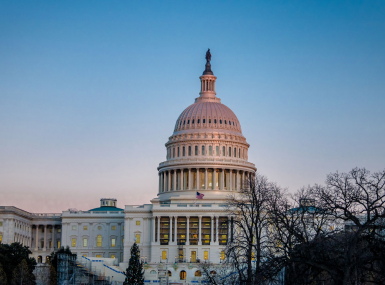U.S. Department of the Treasury issues notice regarding ERA fraud repayments
Author
Upcoming Events
Related News

Key Takeaways
On October 4, the U.S. Department of the Treasury (Treasury) and Treasury’s Office of the Inspector General (OIG) sent a joint notice to all grantees and subrecipients of the Emergency Rental Assistance (ERA) program stating that Treasury is requiring grantees to reimburse the agency or their own ERA programs for any ERA funds that were disbursed due to fraud or unallowable expenses – despite the fact that Treasury repeatedly and explicitly encouraged grantees to allow ERA applicants to “self-attest” to their eligibility for assistance without additional documentation.
What is the Emergency Rental Assistance Program?
The federal Emergency Rental Assistance (ERA) program provided direct funding to states and eligible units of local governments, including counties with populations of over 200,000, to assist families struggling to make rental and utility payments during the COVID-19 pandemic. Counties with populations below 200,000 also may have received a suballocation from their state ERA program.
Impact on counties
In fear of this happening, in December 2022, NACo, along with other national organizations, sent a letter to Treasury asking the Department to clarify that ERA program grantees not be required to repay ERA payments made in good faith to recipients if later investigation the applicant misrepresented their eligibility in self-certification or false documents. Treasury never responded to our letter or other requests.
This policy, if stands, will force state, local, and tribal housing agencies to divert funds they are dedicating to addressing the worst housing affordability crisis in generations to repay the federal government for actions perpetrated by others that the agencies attempted in good faith to prevent. Additionally, this decision could potentially have long-lasting impacts on future emergency response efforts, jeopardizing our shared goal of ensuring the well-being, safety and prosperity of our residents.
Call to action
In addition to the response letter NACo, along with other national organizations representing ERA grantees, sent to Treasury asking them to rescind their October 4 notice, we ask you to fill out this form letter and to Treasury Secretary Janet Yellen and Treasury’s Deputy Inspector General Richard Delmar.
Resource
Emergency Rental Assistance Resource Hub for Counties

Related News

County Countdown – Nov. 4, 2025
Every other week, NACo's County Countdown reviews top federal policy advocacy items with an eye towards counties and the intergovernmental partnership.

